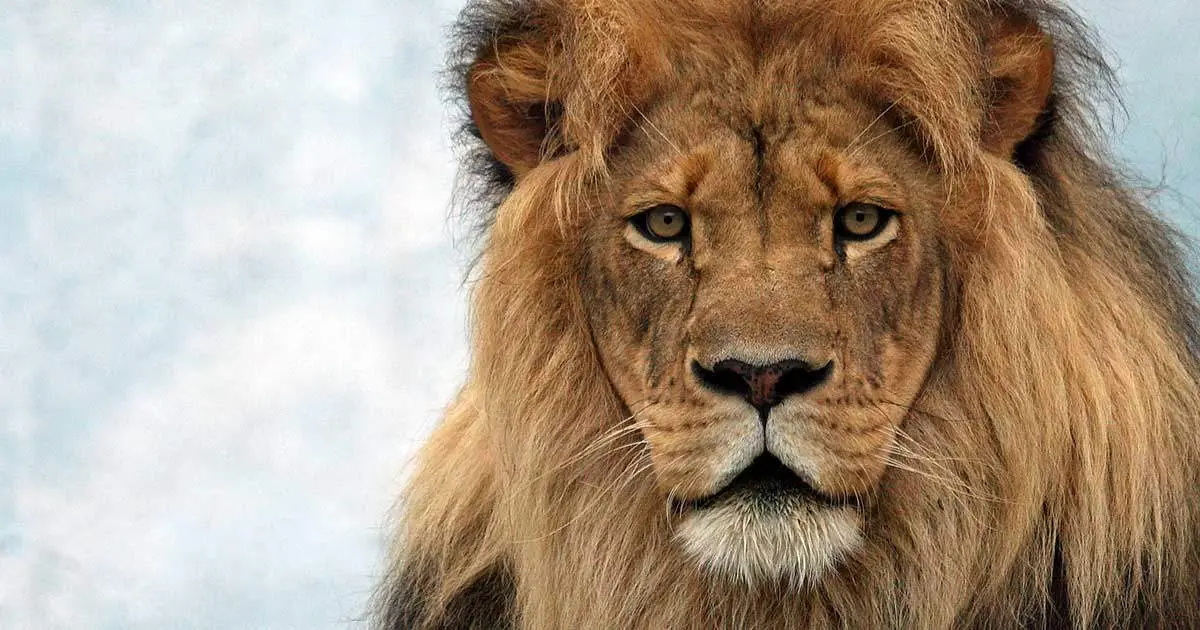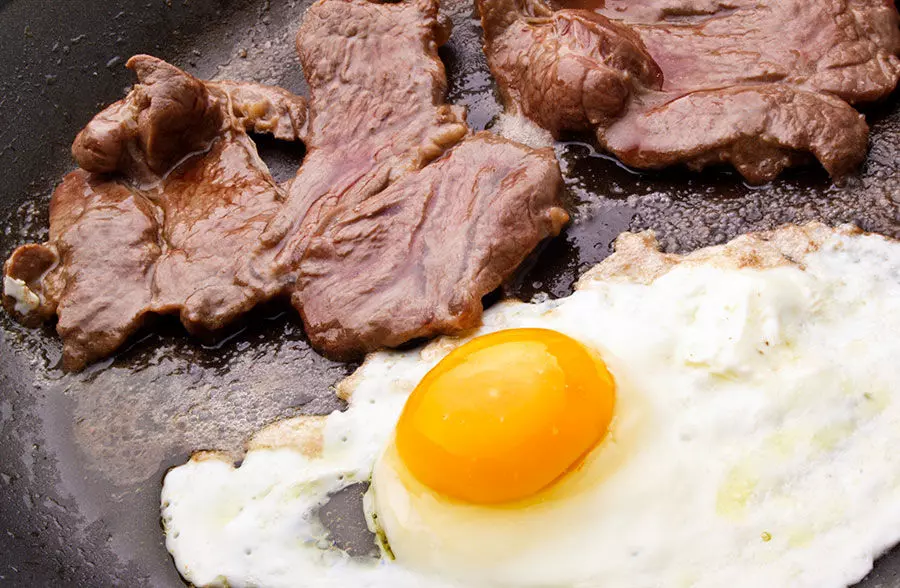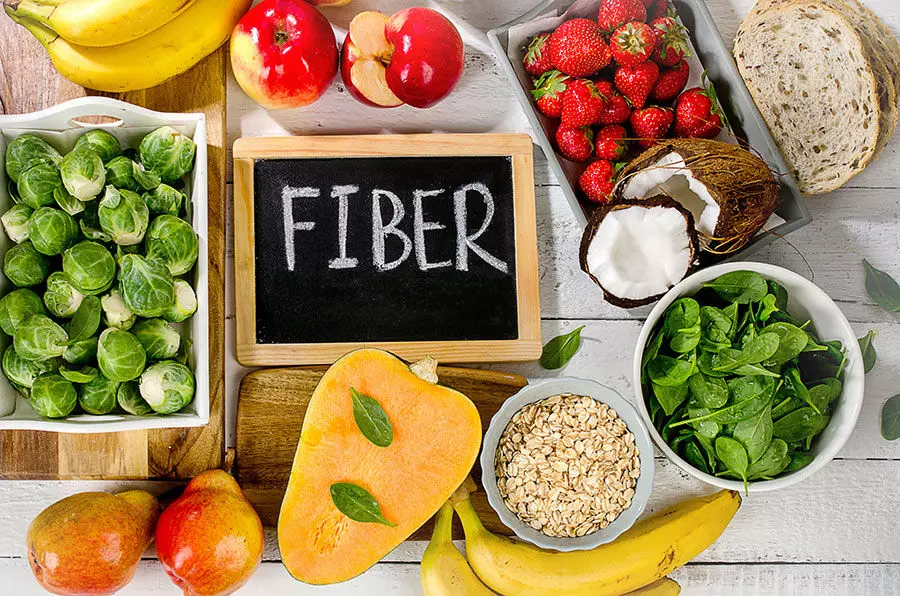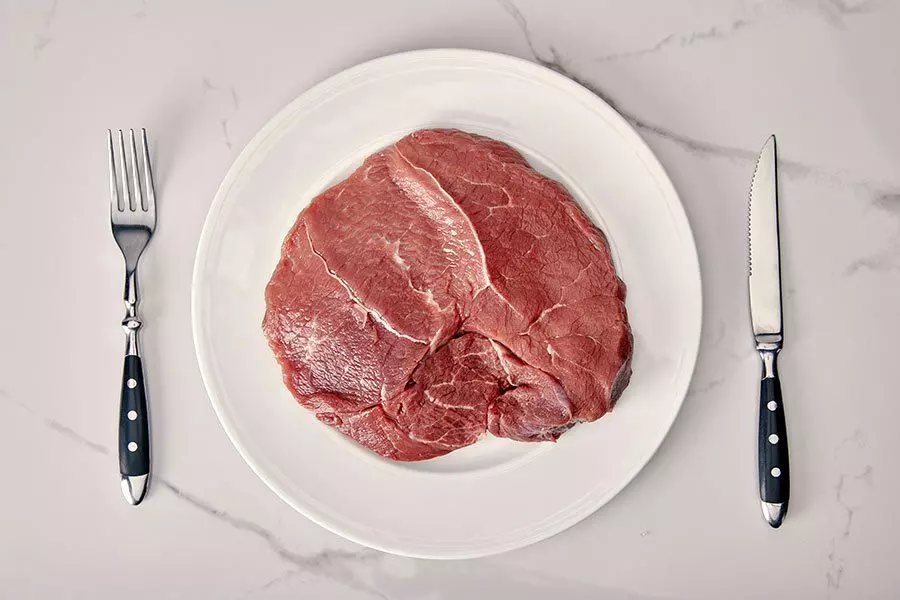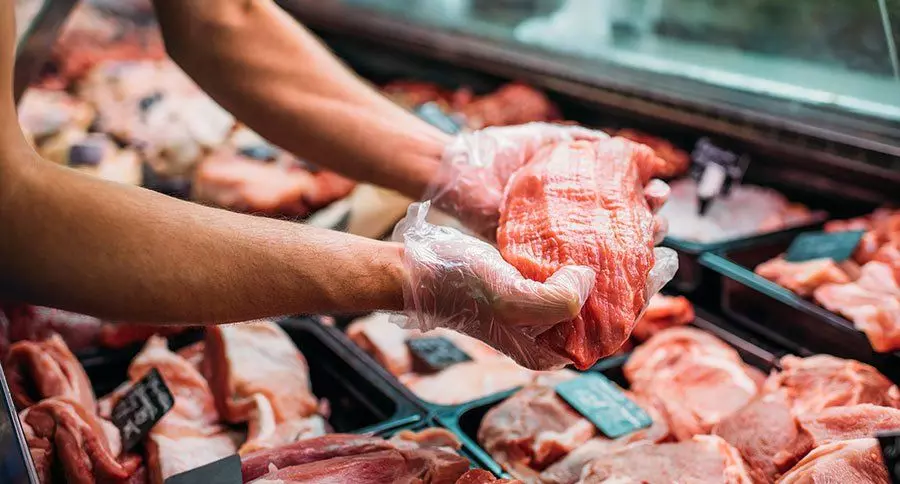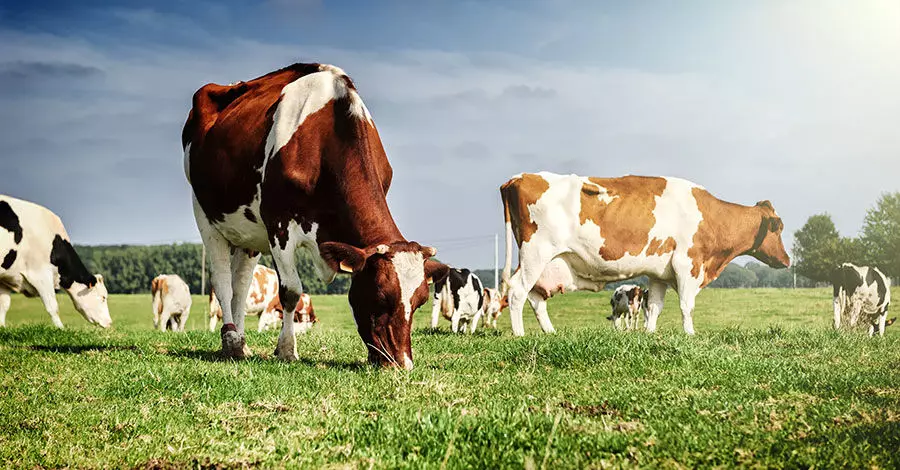My first thought on the carnivore diet was, so you want to eat like your dog?!
Well, I guess there’s more to it though.
Or is there?
Jokes aside, I am an advocate for no processed foods, no sugar, and high-quality carbohydrates mixed with quality protein and fats. So, I’m not opposed to reviewing this carnivorous topic.
Glynn’s Guide: Takeaways That Won’t Fail You
- If done long term, deficiencies will occur.
- There are a few solutions for the deficiencies, but not all.
- This is not a plan for those on a tight budget. Unless you’re an avid hunter.
- You’re limited to meat, eggs and a small amount of cheese on this plan.
- One needn’t worry about cholesterol levels on this diet.
- Your guts microbiome will not be happy with this diet. It’s not wise to maintain long term.
This is not the first time I’ve heard about eating nothing but meat. I recall in the ’80s a few bodybuilders who only ate meat. My guess is that Dr. Shawn Baker made this a more popular style of eating through the power of social media.
It’s not in my nature to single out and judge anyone, so this will not be an article about Dr. Baker. Only my educated opinion of the carnivore diet.
Let me also state that a lot of nutrition health professionals are educated on the foundation of the food guide pyramid. I only studied the chemistry of the human body as it responds to food.
So my opinions are based on the physiological response to food, not the food guide pyramid.
Nonetheless, I’m always skeptical of any dietary regimen that eliminates whole food groups. Our digestive tract has evolved to process an omnivore diet. And no doubt, this is due to a natural selection situation based on whatever food was abundant during a period of history.
All of this said I have to admit; I actually feel amazing when I predominantly eat meat and very little else except veggies.
That said, let’s get to the meat of things!
What is the carnivore diet?
The title is the giveaway. The objective of the carnivore diet is to only eat meat, period.
As much as I love meat, that sounds boring.
Again, it was something I heard about in the ’80s. And I believe Dr. Shawn Baker made it popular for this current trend.
What can you eat on the carnivore diet?
Well, this one’s simple. Preferably red meat, but poultry, fish, and eggs are fine too. I hear cheese on occasion is okay. From an educated standpoint, I don’t see a problem with cheese unless you have a sensitivity to dairy.
I guess the more appropriate question is “what can’t you eat?” And the answer is pretty much everything but meat and eggs.
Can you eat processed meats on the carnivore diet?
No. By using processed meats as an option, you reintroduce some of the aspects you’re trying to avoid.
So, if you’re going to go down this path, stick to the quality cuts of meat that are not processed. Yes, it can get expensive, but to reap any of the benefits from such a meal plan, it’s all or nothing.
What can you drink on the carnivore diet?
You can drink water, unsweetened tea, and black coffee. If you use a sweetener, the only one that is safe is Stevia. It’s pretty limited. BUT… I suggest adding some unsweetened lemon or lime juice to the mix to reduce boredom. And it helps prevent one of the deficiencies mentioned later in the article.
What can you expect from the carnivore diet results?
If you were to eliminate all processed foods, bumped up your meat, healthy fats, and vegetable intake while including a small number of complex carbohydrates, you’d lose weight and feel great. One of the big components here is the elevation in protein.
When one eats a lot of protein, they tend to lose fat tissue. It’s both related to hormonal changes and the amount of energy required to digest protein.
So, if you eliminate everything but meat, you’re sure to feel great and lose fat weight. So you’d like the carnivore diet results if you want to get lean.
You would likely stay lean indefinitely by maintaining the course, but deficiencies will set in after a period.
Yes, you can supplement your way out of those deficiencies. Except for one. Fiber. We’ll discuss this further later in the article.
Are there dietary issues or dangers?
I found very few studies on this subject. And I’m not surprised. But what I did find, left me to question the bias.
I’ll stand on my soapbox for a moment. In one study by L. Cordain, it’s stated that a review of studies pertaining to hunter/gatherer societies showed the lower omega 3/6 levels of the current diet made the difference in cardiovascular disease between industrialized society and hunter/gatherers.
I believe the difference pertains more to the mix of processed convenience foods and a lot of saturated fat.
Remove those processed foods, and the simple carbohydrates, keep the fat and LDL levels drop.
Anyway, as mentioned earlier, you can supplement your way out of most deficiencies except fiber. And the bacteria in your gut that you want to feed requires several varieties of fiber. You can learn a little more about the gut/brain connection in my article on feeling hungry.
Nutritional deficiencies on the carnivore diet
Let me start by stating that the RDA’s were created to prevent nutritional deficiencies. Not as a promotion of health. Nutritional deficiencies can be nasty and take many months to exhibit their symptoms.
Keep this in mind when you’re reviewing a celebrity’s “1-month” feedback on the carnivore diet. Case in point, Joe Rogan’s recent review (video below). And I’m fairly certain that the majority of his diet is made up of the wild game. There’s a significant difference in the nutritional quality of farmed meats vs wild game.
There are several key nutrients on a macro and micro level that are either vacant or too low in meat. The specific nutrients I’m speaking about are fiber, Vitamin C, Vitamin A, calcium, thiamin, and folic acid.
As mentioned previously, it takes a while for our bodies to exhibit symptoms of deficiency.
So, what’s a good solution for each nutrient aside from supplements?
- Fiber: There is no solution.
- Vitamin A: Incorporate more fresh bluefin tuna into your diet daily, liver on occasion or up to 8 whole eggs a day.
- Vitamin C: Eat a lot of clams or oysters daily.
- Calcium: Eat more fish and shellfish. Don’t be shy with the bones.
- Thiamin: Consume more wildfowl or liver on occasion.
- Folic Acid: Consume liver daily (this is dangerous… don’t do it).
Carnivore diet and constipation
The digestion of protein requires additional water to break down into amino acids. Whereas the digestion of carbohydrates does not require water. So, in other words, a lot of carbohydrates will hydrate your body and protein will dehydrate your body.
This pull of water from the body into the GI tract for digestion is most likely responsible for initial diarrhea that occurs. Once your body adjusts, this should pass.
So then what? Well, fiber genuinely helps with gut transit and feeds the necessary bacteria. Yes, you’ll still be able to poop (I have kids… enough said). But the risk of diverticulitisDiverticulitis is the formation of outpockets in the intestinal wall that become infected elevates drastically without fiber.
Carnivore diet and your microbiome
Our gut microbiome is extremely adaptive. Many of the bacteria that we consume in food are considered transient bacteria. In other words, it has very little influence. There is a “homeostatic” mix of both good and bad bacteria in our gut. They keep each other in check.
These different bacteria and fungi have nutritional preferences. If you feed the more dangerous ones a lot of what they like, you create issues. For instance, a diet high in sugar promotes poor gut health by feeding the less desirable bacteria and starving the good bacteria.
When you cut out all food groups but one, the bacteria that prefer meat thrive and dominate. This is a dangerous “lack of balance.”
Can you eat too much protein?
The short answer is no.
You cannot eat too much protein.
Does your genetic makeup influence how you process meat?
I believe our genetic make-up has a large influence on how we respond to certain foods. I also believe there will be a lot more information on this subject in the coming future.
Gluconeogenesis anyone?
Our brain and liver require glucose to function, so we have a great ability to turn protein into glucose. It’s called gluconeogenesis. Depending on your activity level, some of the protein will be turned into glucose anyway.
In fact, you can see spikes in blood sugar just as if you consumed carbohydrates. This is not abnormal in any way.
The carnivore diet and cholesterol levels
I mentioned earlier that if you eliminate most carbohydrates and just eat meat and fat, your triglyceride and LDL levels will drop. Your HDL levels will also go up a little bit. But you can maintain that same balance by ingesting vegetables and insoluble fiber with your meat and fat.
But, the elimination of all but meat and animal fat will likely have the same result. In other words, your cholesterol should remain in check. Again, there are good studies to follow up on the statement.
The Carnivore Diet on a Budget
Can you eat a carnivore diet on a budget?
Everything else aside, that’s a legitimate question. And unless you’re an avid hunter who tags a lot of animals, it could get really expensive!
So, no. I don’t think you can do the carnivore diet on a budget.
Carnivore diet food list
Here’s an example shopping list for 7 days. It is short but expensive!
This is a carnivore diet food list for a typical male in the 40’s who’s active. I’m building this around four meals a day with some variety each day.
- 5 dozen organic eggs (8/day) This is for meal 1
- 32 oz ~ 82% grass-fed ground beef (14 oz/day) This is a choice for meal 2
- 32 oz ~ 82% organic ground turkey (14 oz/day) This is a choice for meal 2
- 32 oz ~ 82% organic ground chicken (14 oz/day) This is a choice for meal 2
- 56 oz variety cuts of organic grass-fed beef or bison (8 oz/day) This is for meal 3
- 56 oz variety of fish (tuna, salmon, etc) (8 oz/day) This is for meal 4
- A 16 oz block of favorite cheese to have on occasion.
Take note, since the diet is so limited, you don’t have many options for recipes. So the carnivore diet food list is pretty limited.
What about the environmental impacts?
No doubt, you’ve heard about the environmental impact of large scale meat production. Yes, cow farts produce a lot of methane, which is worse than CO2. There’s also the land usage and waste materials.
The farming of livestock in big agriculture places a tremendous strain on the environment. But so does a lot of our food production. I personally don’t believe we could feed the entire population of the world organically. Unless our systems of raising/growing food change dramatically.
But this is not the point of this article. Just a point worth noting.
What about boredom on the carnivore diet?
You have to admit, it will get boring just eating meat and eggs after a few weeks (a few days for some)! And if you’re not great with the use of spice, the meals will be very bland!
If you do decide to go down this road, I suggest a pressure cooker for the meat on occasion. At least it makes for delicious moist “fall apart” meat.
Keep in mind that the typical sauces you use on meats (ketchup, barbecue sauce, etc. are not acceptable). But there is one you can get away with…. Mustard! Consider it a freebie on any plan.
Conclusion
Regardless of whether this is “healthy” or not, we have to ask something important. If the carnivore diet improves someone’s weight, mood, pain, and energy level, what’s less healthy?
Perhaps it’s a short term method to kick start weight loss. Or it’s a way to just break bad habits. And then slowly introduce healthy vegetables and carbohydrates.
Nonetheless, there are some serious aspects of the carnivore diet to consider. If it’s short term, then go for it! If it’s long term, deficiencies will be a problem.
Again, I’m not a fan of any meal plan that eliminates all but one type of food. But I am for anyone who is trying to better their health through a short term run of the carnivore diet.
Carnivore Diet FAQs
Can you cheat on the carnivore diet?
No. Use cheese as your break.
Is the carnivore diet anti-inflammatory?
If you have a sensitivity to a particular starch or vegetable you eat regularly, it may be causing some inflammation. Eliminate it from your diet and the inflammation should disappear.
Can the carnivore diet heal arthritis?
Again, if you’re eating foods that are inflammatory, the elimination of those foods will result in less inflammation. This will also reduce the pain from arthritis. But it will not cure it, only lessen the pain.
Is the carnivore diet unhealthy?
For the short term, no. Any more than a month and you risk real deficiencies.
Who is the carnivore diet for?
The carnivore diet is for those individuals who want to jump-start a new lifestyle with rapid results. It’s also good for breaking poor eating habits. Then you can start adding back vegetables and some fibrous starches.
Carnivore Diet Resources and Research
James W Anderson, Pat Baird, Richard H Davis, Stefanie Ferreri, Mary Knudtson, Ashraf Koraym, Valerie Waters, Christine L Williams, Health benefits of dietary fiber, Nutrition Reviews, Volume 67, Issue 4, 1 April 2009, Pages 188–205.
Cordain, L., Eaton, S., Miller, J. et al. The paradoxical nature of hunter-gatherer diets: meat-based, yet non-atherogenic. Eur J Clin Nutr 56, S42–S52 (2002).
Fiala, Nathan, Meeting the demand: An estimation of potential future greenhouse gas emissions from meat production, Ecological Economics, Volume 67, Issue 3, 15 October 2008, Pages 412-419
Jacques R. Poortmans & Olivier Dellalieux, Do Regular High Protein Diets Have Potential Health Risks on Kidney Function in Athletes? International Journal of Sports Nutrition and Exercise Metabolism, Volume 10 Issue 1, March 2000.
M. A. Tarnopolsky, S. A. Atkinson, J. D. MacDougall, A. Chesley, S. Phillips, and H. P. Schwarcz, Evaluation of protein requirements for trained strength athletes, Volume 73Issue 5 November 1992, Pages 1986-1995.
Uzhova, I., Peñalvo, J.L. Mediterranean diet and cardio-metabolic health: what is the role of meat?. Eur J Clin Nutr 72, 4–7 (2019).
Guoyao Wu, Dietary protein intake and human health, Food Funct., 2016, 7, 1251-1265.

